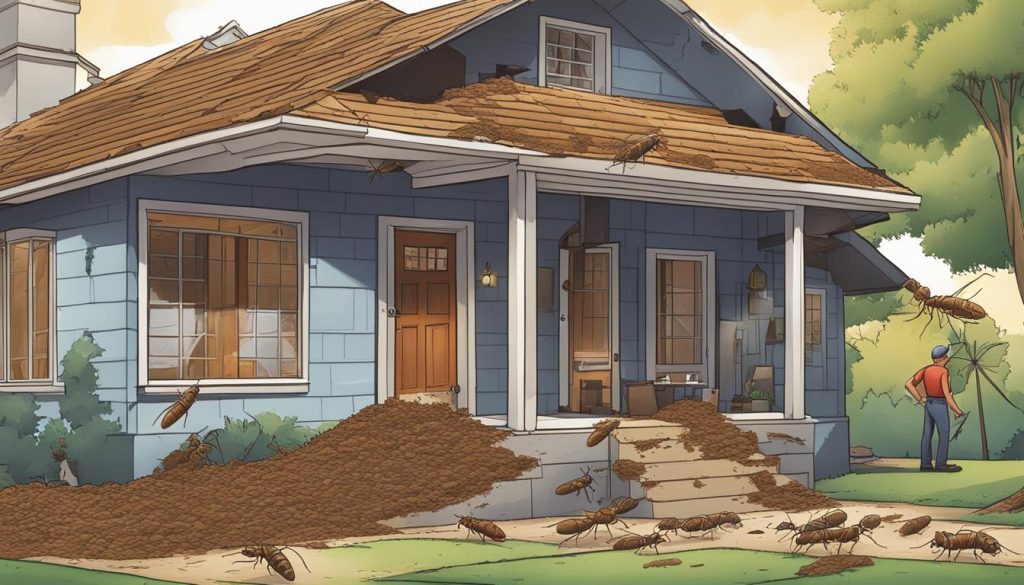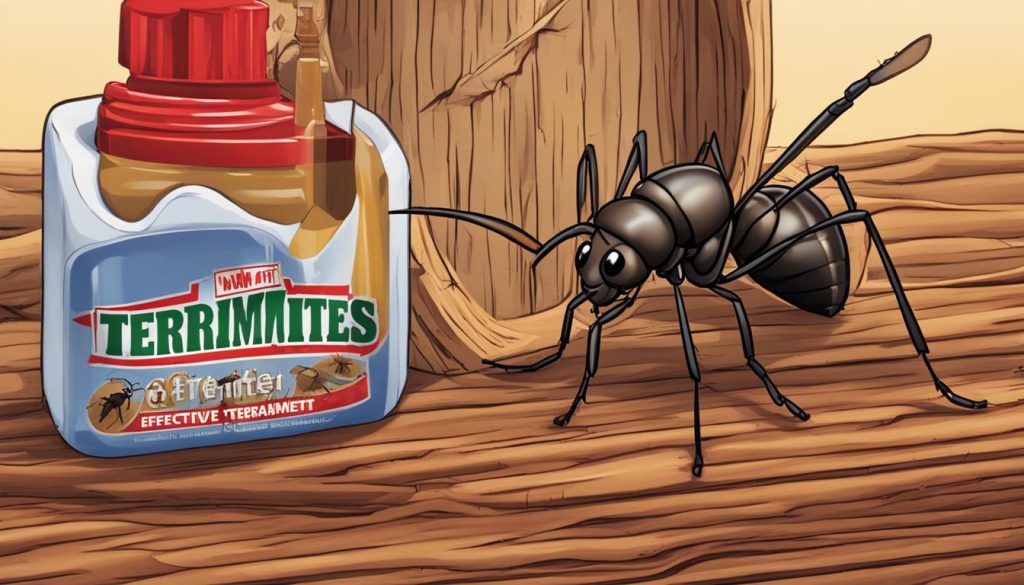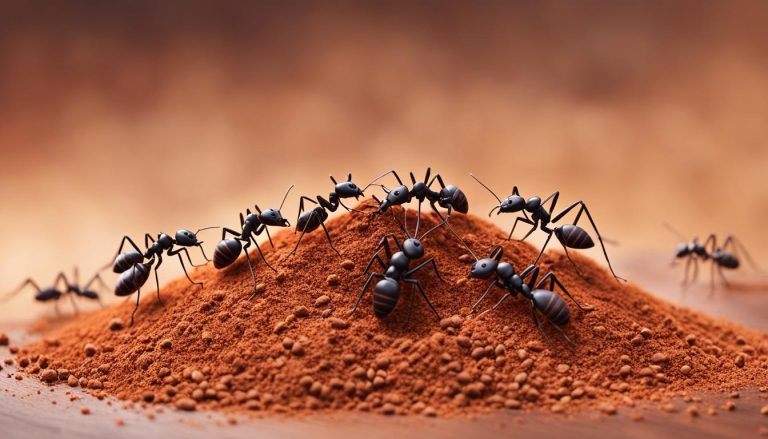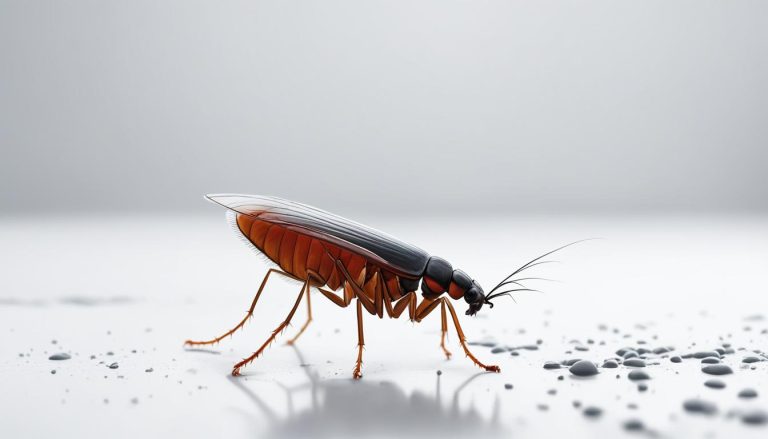Aussie homeowners often scratch their heads wondering: will ant killer kill termites? It seems like a fair question since both critters are tiny and irksome, but the truth isn’t simple as one might hope. Ants might think termites are a tasty treat, but they don’t wipe out their colonies completely; it’s like keeping the pantry stocked, savvy?
Blind as they are, termites are tough and can fend off ant attacks. If termites’ homes are damaged or while they’re searching for nosh, ants might sneak into their mounds. Yet, getting rid of termites at your place requires a different tack. Tools like direct sprays for ants and dusting for termites come into play. Effective termite killer techniques can change with the seasons, working faster when it’s sizzling. Also, having a regular squiz with professionals keeps your home secure even if you’ve gone the whole hog with a termite barrier. And of course, don’t count on ant mates to protect your pad from termites.
Key Takeaways
- Ant killers aren’t the best termite killer for your home.
- Termites are tough and need special termite treatment.
- Methods to exterminate termites vary with weather.
- Regular check-ups from pros are key, even with termite barriers in place.
- Ants chowing down on termites doesn’t mean your home’s safe from them.
Understanding the Battle: Ants vs. Termites
The tussle between ants and termites is a natural spectacle that’s been occurring for aeons. When ants get the chance, they do go on the attack and munch down on termites. The drama often unfolds when, say, a wandering wombat clumsily disturbs a termite mound or the termites themselves unwittingly invite trouble while out on a food quest. The minute ants spot an opening, they swoop in for a feed.
Despite their vulnerability to these invasions, termites pack a punch and have evolved sophisticated ways to guard their homes. With rigid social structures and an almost military-like defence strategy, termite nests are not easy pickings for ant invaders. At your place, you might find ants simple enough to knock over with a burst of insecticide, but this same casual approach won’t do a thing against termites.

Termites demand a craftier form of warfare, involving termite control treatments that trick them into taking the poison back to their nest, thereby dealing with the whole gang. The big difference in how ants and termites are built explains why a spray that blasts ants might be useless against termites. Let’s serve the facts straight up:
- Ants can be zapped with a general ant killer for termites, but termites? Not so easy.
- While both pests might seem similar, termite elimination tactics need to be tailor-made.
- General termite and ant killer products won’t cut the mustard for home termite troubles.
What’s the bottom line here? While ants and termites have been going head to head in the wild for a long while, that doesn’t translate to a one-size-fits-all approach when it comes to busting them in your backyard. If you’re up against termites, you’ll need to up the ante with specialized strategies to send them packing.
Will Ant Killer Kill Termites?
Many homeowners wonder whether the same treatments used for ants are effective against termites. The answer, however, isn’t a simple yes or no. Experts point out significant differences between these pests, meaning distinct methods are necessary when it comes to termite control.
Insights from Experts on Termite Control
Specialists in termite control efficacy advise that typical ant killers lack the potency to exterminate termites. Termites live in complex, hidden colonies, and treatment strategies need to address these unique behaviors. They point out that moisture and certain wood types can attract termites, making natural termite control as much about prevention as elimination.
Comparing Ant and Termite Physiology
Understanding the differences in physiology between ants and termites is key for effective pest control. While ants can succumb to simple insecticides, termites are adapted to thriving underground, shielded from general ant killers. It’s clear that the best termite killer isn’t necessarily the one that works on ants.
Natural Termite Control vs Chemical Ant Killers
Natural strategies can prevent termite invasions, such as keeping gardens and structures dry and using treated timber. However, an effective termite killer often involves targeted chemical treatments. These create barriers or employ bait systems to ensure termite elimination throughout the entire colony.

When looking for a way to safeguard your home from these wood-loving insects, remember that termites and ant killer products are not interchangeable. The safest route to protect your home is always through professional termite treatment.
Conclusion
In wrapping up, it’s pivotal we tackle and put to rest the tall tales suggesting ants might act as a barrier against termites. Instead of leaning on folklore, effective termite control starts with regular professional inspections and barrier treatments tailored to keep your home safe from these stealthy invaders.
Myths Debunked: What Really Protects Your Home
Forget the notion that ant killers can double up as an effective termite killer. This just isn’t the case. Your home needs a solid line of defence against termite damage, rooted in active prevention. Keeping an eye on moisture buildup and being smart about your garden layout helps in dodging the welcome mat for termites.
Professional Recommendations for Termite Elimination
Experts stress that the best termite killer is knowledge and action. Proper identification and precise termite treatment are your true allies. If you’re looking to exterminate termites, professional services are indispensable, offering advice and strategies adjusted specifically to your property’s needs. Forget the shortcuts and ensure your home’s protection with expert termite control.
FAQ
Will ant killer kill termites?
No, ant killer will not kill termites effectively. Termites require specific treatment methods that are different from those used for ants. Professionals advise using targeted termite treatments for extermination instead of ant killers.
What is the most effective termite killer?
The most effective termite killer is typically a professional termite treatment which may include chemical barriers, bait systems, or direct application of termiticides. The best approach can depend on the type of termite and the extent of the infestation.
Can I exterminate termites using DIY methods?
Exterminating termites is complex and usually requires professional help due to the termites living in inaccessible underground nests. DIY methods may not reach the termite colony’s core and can result in incomplete elimination or further spreading of the infestation.
How does termite control differ from ant control?
Termite control often involves creating barriers or baiting systems that can affect the entire colony, whereas ant control typically focuses on direct removal or repellence of the ants. The difference stems from the varied nesting habits and physiology between ants and termites.
Is natural termite control effective?
Natural termite control can be effective as a preventive measure. It often includes avoiding damp, untreated wood and minimising soil-to-wood contact. However, for existing termite infestations, professional treatments are usually required for complete elimination.
How can I prevent a termite infestation in my home?
To prevent termite infestations, ensure regular termite inspections, reduce moisture sources, avoid using untreated wood, and maintain a gap between soil and wooden structures. Professional termite barrier treatments can also offer long-term prevention.
What should I do if I find termites in my house?
If you find termites in your house, it’s important to contact a professional pest control service immediately. Attempting to treat the problem yourself with ant killer or other DIY methods is not recommended and can worsen the infestation.






